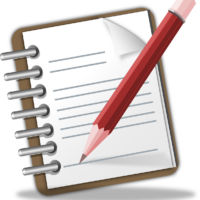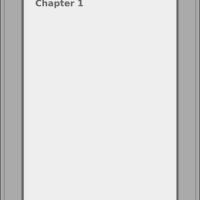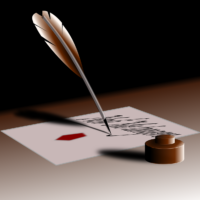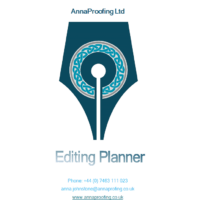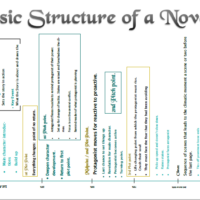by Anna Johnstone | Sep 14, 2017 | Blog, Service
Here it is!
I’ve now closed down the old editing blog and copied my posts across so I am only managing one website. This site allows you to send enquiries, view prices and services, as well as read news and advice on writing, editing and self-publishing, all in one place.
It also allows you to post testimonials and reviews of my service. Feel free to have a click around and explore and do let me know what you think.
by | Feb 20, 2017 | Blog
Update: 6th March 2017
Sadly, due to lack of takers, this event has had to be cancelled.
A couple of months ago I was kindly invited by another editor if I would be interested in attending a small but intensive writing workshop in Paris. Obviously, I jumped at the chance. It’s Paris! However, this isn’t the only reason I can’t wait to go (no, not the wine. Well, not entirely). What I am really excited about is the opportunity this trip will offer to learn from other writers and editors and improve the service I offer. I will admit I am a bit of a fangirl but with good reason. I have two courses on my Udemy account. Both of them are his and have been hugely helpful. His YouYube channel is another invaluable resource for new writers. The other guests have been carefully selected in order to provide expertise and insight into the writing process. It will provide a face-to-face forum for authors to take part in open discussion, storytelling, exercises and games.
Here’s the really good news: there are still four places left as far as I know. All you have to do is email Harry with the reason you want to be there. The details can be found on Harry’s website. The weekend will stretch from the 25th to the 26th May 2017. Booking will only remain open until the end of February so do hurry. ‘Inspiration and Games’ costs €200 for two nights. If you want to arrive on the 25th (which is what I am doing because the return flights from sunny Luton are a good deal cheaper on the 25th) and spend an extra day in Paris, it’s €225. This covers accommodation, two evening meals and breakfast (excluding the evening of the 25th and breakfast on the 26th).
by | Dec 29, 2016 | Blog
Two more days left of 2016, and it has been quite an eventful year. In the latter half of this year, I not only finished my degree but have taken a somewhat, though not wholly, unexpected turn in my plans, career wise. It’s also about this time of year where I give myself a self-audit regarding where I am, where I want to be and how I plan to get there. Don’t worry I am not going to drop everything and start backpacking around Asia or something. Travelling is simply not feasible…yet. The other reason is that I would rather spend the money on my kit for Viking re-enactment.
I knew from the age of around 15 that I wanted to do something involving writing. Sadly, I allowed my parents and teachers discourage me. To cut a long boring story short, I am getting another crack at the whip. When I began my studies in February of 2011, I had my heart set on teaching History in a classroom setting. I got keener as I progressed but in the last year or so I have been considering my Plan B options: Open University grading policy has meant that my results were not what I needed them to be to get on to any of the training courses. I had certainly not seen myself as a self-employed Freelancer I cannot say that it wasn’t a disappointment because the same results from a ‘brick’ university would have got me a 2:1 or even a first, but what’s done is done. I still managed it while looking after 3 kids, so yay me. I am sure my sleep patterns will recover soon, and this (theoretically) lets me off taking my maths GCSE. Again (shudder). That said, I am thinking of taking it anyway just so I have that apparently necessary C that I have managed quite happily without for the last 16 years. I am yet to find a practical use, in my field, for knowing how to calculate the area of a circle.
A suggestion from a fellow editor made me give editing and proofreading a go and I am glad I took him up on his advice. I love it and have since set myself up as a freelancer. This means I have the freedom to set my own hours. It has also taught me that I not only need to learn when to stop working and think about something else for a while but actually do it. Looks like I have a New Year’s resolution to keep for next year. I am feeling extremely positive about this new direction. It’s a teaching role (of sorts), just the one I was expecting and I will get to use all my skills.
NaNoWriMo was an eye-opener, to say the least. I gave it a good shot, but I then ended up with a beta-read that I couldn’t turn down. Next year I’m going to make sure I schedule enough time to do my own writing. I have an idea lined up but I have a strict ‘no spoilers’ rule. It will give me plenty of time to finish the first draft of this month’s, edit and get it ready for publishing. I’m really excited about this too. NaNoWriMo gave me the boot up the bum to make a real start on it. The Densewords ‘Readworthy Fiction’ course (available via Udemy) is also proving to be a massive help where printed writers’ guides were not. I would recommend it to any author.
Finally, 2017 will be the year I get my driving license. I have procrastinated for long enough. I will be 36 in April and have decided that now it’s time to stop being a massive wussy and do it.
To-do-List for 2017.
- Finish first-draft of my first novel, (for publishing in December 2017)
- Learn to drive
- Retake maths (yuck)
- Learn when to stop.
Call to action!
What are your top four priorities for 2017?
by | Dec 7, 2016 | Blog
10 powerful tips on avoiding telling writing in creative writing.
“Creative writing teachers love to dole out wisdom or advice about fiction writing, as if they’re part of some esoteric order that guarantees enlightenment to all who memorize their pearls of wisdom. One of the most often quoted axioms is: “Show, don’t tell.” The idea is to keep students from explaining the story, that is, to stop them from using telling writing and get them to use showing writing instead.”
Source: Ten Tips to Help You Avoid Telling Writing | Scribendi.com
by | Dec 6, 2016 | Advice, Blog
Choosing an editor is not easy. The good ones have fees that could choke a horse. However, they are GOOD editors, so the fees they charge are worth it. If you can afford those fees. Unfortunately, many Indie authors just can’t break out that kind of cash.
Enter the rip off artists. They come in many levels of incompetence from authors who just want to make some side cash but don’t really know how to edit, to outright thieves who will take your money and give you nothing in return. Unfortunately, the latter kind thrives on the internet. We have all heard the stories of writers victimised by people calling themselves editors but didn’t even fix spelling mistakes, much less formatting, style, or continuity issues. As an editor myself, I am always learning and improving my craft this kind of thing makes me so angry – not least because it taints all freelance editors with the same reputation – but rest easy. This post is not an estate agent type post telling you to only trust me and ignore all those other editors. Finding the right editor for you is important.
So here are some guidelines for how to find the honest ones, pick an one, and dealing with them. Feel free to pipe up in the comments with any other suggestions I might have missed.
- Go with someone you know or who is recommended. If you can’t do that, the following steps can help.
- Do your research: collect reviews and referrals. How do they respond to complaints?
- Ask for a sample edit from the first chapter of your book, before any money changes hands. A new editor should be willing to do this to get your business, and most honest editors offer this as standard.
- Have someone you already trust and knows what they are doing, read the sample and let you know if they are good.
- Try to find one who will take a deposit up front and charges balance when the job is complete. If they demand the whole balance up front, steer clear. That said, I do expect full payment up front for small jobs (less than 10 pages =2500 words), but 50% of that is refundable if the client is not happy with my work
- Generally, I would advise you to avoid those who demand the full amount upfront. If their work is genuinely substandard –this is not the same as being unhappy about harsh feedback- do not pay the balance and demand your deposit back. New writers should be aware that it often takes several rounds of editing before your work is publishable.
- No editor can wave a magic wand and suddenly turn an unstructured first draft into a literary marvel in one go, and no reputable editor will claim to be able to. It depends entirely on the submitted work.
- Not all editors offer the same services or deal with the same type of text. You need to find out which genre they will work with and what levels they offer. I offer all four levels and am pretty much happy to edit whatever crosses my desk. Others may only deal with certain genres, or offer higher level editing. An honest editor will use your work to assess the level you are writing at and determine what the work needs. They will advise you what needs to be done, and if they are not able to offer the full scope of work required, you may find they will point you in the direction of someone who can.
- If you have ever dealt with an editor who has given you less than the quality of work promised for your money, you still have rights. A freelancer is subject to the same consumer laws as everyone else.
- You want to engage with someone who will cut deep and pick up the typos and mistakes. Remember, a good editor is on your side. A reader is not. The editor wants you to be able to publish your best work possible. You are not looking for ‘nice’. If they go too easy on you or appear to be in a rush to get to print, it can still count as bad editing. The reader will not be nice or give you the benefit of the doubt as it’s your first book. They will, at best, put your book down and never read your work again. At worst, they will leave a scathing review from wherever they bought it, and they will still never read your work again.
- A good editor will not point you at a publisher or insist that their services rely on you going with a particular press. If they do, they are probably taking a back-hander. I’m afraid you will have to do your homework for that too.


